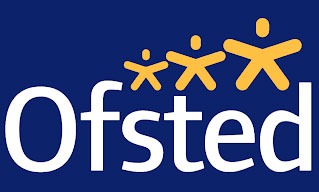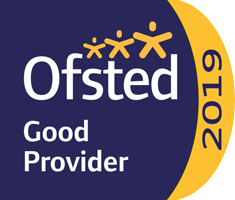Our Approach to Learning and Development
Ofsted
Every child deserves the best possible start in life and the support that enables them to fulfill their potential. As a registered ‘Ofsted Good’ early years provider, we follow the requirements of our registration as well as the (EYFS) framework which helps us to support an integrated approach to early learning and care.
Our warm and friendly uniformed team are fully qualified, DBS checked and experienced practitioners, with a Special Educational Needs Coordinator” (SENCO) in each setting
Early Years Foundation Stage (EYFS)
The EYFS defines 7 areas of learning
The three prime areas:
- Personal Social and Emotional development
- Communication and language
- Physical development
The four specific areas of learning:
- Literacy
- Mathematics
- Knowledge and understanding of the world
- Expressive arts and design
During the first three years of a child’s life, we focus on the three prime areas of leaning to ensure they are developing a strong sense of self whilst understanding their emotions, have the ability to communicate and are physically able to develop self-care skills.
The four specific areas of learning are a focus for children beyond the age of three who are staring to prepare for their transition to formal education .
To support the development of the 7 areas of learning we have designed three rooms to specifically meet the needs and learning styles of the following groups of children, our four goals are woven through each room.
Each room has pets, flowers, fruit and vegetables to reinforce always having something growing.
Parent partnership is promoted through daily handovers, termly parents’ meetings and communication through the Famly app, as well as from the point of enquiry, nursery tour and settling in sessions.
Independence is encouraged in each room, babies learn to walk and feed themselves, toddlers practice getting dressed as well as pouring their own drinks, serving their food and toileting, preschool children develop skills to manage their own conflicts with supportive adults, make food that they can eat and navigate through their own play ideas.
Makaton is used to promote communication in all rooms, children find it much easier to signal their emotions rather than speak them at times of frustration or upset.
- Mini explorers (Baby room 0-2yrs) – with a ratio of 3 children to 1 adult.
Babies need the opportunity to bond with their key person, once an attachment is formed your baby will be ready to learn through play. We facilitate learning opportunities for your baby to learn using their four senses. Play activities are sensory based and use natural materials so that your baby can become aware of how to use familiar everyday items. We use schemes which are repeated patterns of behaviour to identify your child’s interests and ensure that activities we provide meet the interest and ability of your baby’s developmental stage.
Our baby room is a cosy calm environment where your baby can feel safe and spend quality time with their key person whilst also being supported to meet developmental milestones such as weening, walking and talking.
- Adventurers ( Toddler room 2-3yrs) – with a ratio of 4 children to 1 adult.
Toddlers need space to explore as well as stimulation, we offer time for free play where your toddler can learn how to play alongside other children, communicate their needs and learn through being independent, your key person will work closely with you to make sure your children’s interests are the focus of their learning opportunities.
- Investigators (Preschooler room 4-5) – with a ratio of 8 children to 1 adult.
Our pre-school children have a daily routine so that planned learning can take place. The preschool children follow instructions and develop listening skills, they learn how to regulate their emotions and express their feelings to their peers, cooperate through play and develop skills to prepare them for formal education when they start primary school.
Our curriculum includes phonic programs to develop literacy skills, cooking to promote science concepts as well as understanding of weights and measure, group times focus on the world around us and also develop listening and attention skills that will be important for formal education when the time comes. The routine each day supports times for the children to choose their own play which are carefully designed to develop learning as well as structured learning each day to develop your child’s global development.
Our planned learning includes, recognition of number, shape and problem solving, literacy, sound and mark making as well as independence through meal times and health care routines.
The early years foundation stage (EYFS) sets standards for the learning, development and care of children from birth to 5. You can discover more about the Early Years Foundation Stage and click here.

All children make good progress and learn to be independent. Funded children benefit from the sessions attended. They develop key skills needed for their future learning.

